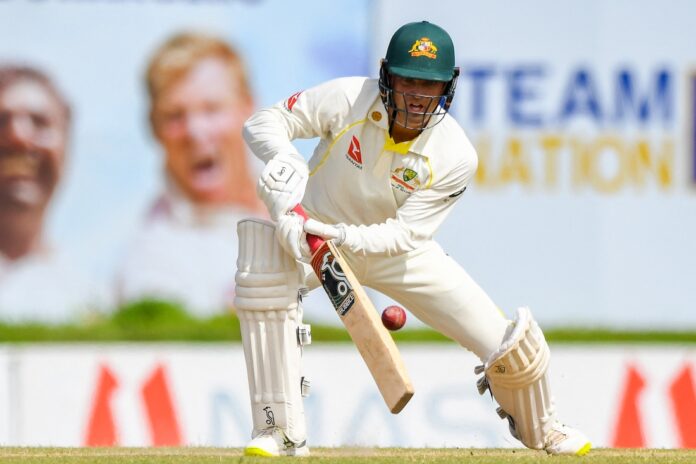On Friday, England will host India at Edgbaston, Birmingham, in a Test match which was initially scheduled to start last year, Sept. 10, at Old Trafford, Manchester, but had been delayed over COVID-19 concerns.
That game did not take place because of an overnight decision by the Indian party, fearful about COVID-19 spreading through its camp, to declare this had a significant impact on their ability to field a team. This was despite none of the players testing positive the day before the game. It was members of support staff who had done so, resulting in players isolating in their hotel rooms. Minutes before the gates were due to open at 9 a.m., news of the cancellation seeped out, to the dismay, disbelief and disappointment of all those involved, except the Indians, it seemed.
They left England over the following two days to fly to the UAE, where the Indian Premier League was due to resume on Sept. 19, having been curtailed halfway through in early-May because of COVID-19 concerns in India. The Indian team’s decision in Manchester split the cricketing world. One view was that, coming on top of months of isolation during the pandemic, the new isolation had been the straw which broke the camel’s back in terms of players having the mental ability to cope with the fatigue from yet another bio-bubble.
An alternative view, vigorously denied, was that the fear of catching the virus, so close to the resumption of the IPL, would mean that the players would not have been able to take their places in their team bubbles until after quarantine requirements had been satisfied in the UAE. The Board of Control for Cricket in India specified six days of quarantine. Thus, leaving England between Sept. 11 and 12 gave them just enough time to play in the IPL on Sept. 19, whereas leaving on Sept. 14 and 15 would not have allowed this. There were also issues over whether the cancellation, over COVID-19 concerns, would be covered by insurance; or if the game had to be declared forfeited.
Feelings ran high in both camps. It was not until Oct. 22, 2021, that a resolution was announced under which the match would be played between July 1 and 5, 2022 but at a different venue, Birmingham, rather than the original one in Manchester. The official reason was that, because of other events, there would be insufficient time to prepare a pitch at Manchester. The move also took out of the equation the possibility of any residual ill-will existing there. Nevertheless, it is scant consolation for ticketholders of the original match, who are not able to watch the rearranged one, nor local traders who lost business. Manchester will host South Africa in August.
There has been almost no public commentary on the substance of the negotiations between the Indian and English cricket boards, the implications of the agreement for insurance claims, and also the conditions under which India agreed to play. The match will complete the four-match series, with India holding a 2-1 advantage. Since September 2021, the two teams have undergone shifting fortunes. Both have different captains and coaches. After desperately poor performances in Australia and the West Indies, England have been re-energized by new management, having beaten New Zealand 3-0 in a Test series, which ended last Monday.
India was beaten 2-1 by South Africa in a three match Test series in December 2021/January 2022, after which its highly successful captain, Virat Kohli, resigned, following tensions with the BCCI. Under his successor, Rohit Sharma, India beat Sri Lanka in a two match Test series in February 2022. It is ironic that he has tested positive for COVID-19 prior to the upcoming Test and, with the appointed vice-captain ruled out by injury, the Indians have appointed a pace bowler, Jasprit Bumrah, as captain, in an unusual move.
What is clear is that COVID-19 continues to impact not only this series but cricket, in general. The mental health and well-being issues cited by the Indian camp last September have also applied to other cricketers during the pandemic. The new England captain, Ben Stokes, took a break from the game in July 2021 to deal with his own issues, thus missing the series against India. It is another quirk of fate that he joins the series for the final match.
By its very nature, cricket has long had an uneasy relationship with mental health and a reticence to confront it. Cricketers spend much time alone, both on and off the pitch, with ample opportunities for reflection and rumination. Worries about form, technique and injury can generate self-doubt, which can be preyed upon by opponents. This scope for introspection has received impetus from experiences generated by the pandemic. These have created abnormal relations with families, friends, teammates, spectators, opponents and media. They have been superimposed upon the normal issues which confront cricketers performing as individuals within a team environment.
Cricket has also attracted attention as a sport which, since the early 20th Century, has allegedly suffered a higher-than-average proportion of suicides by professional players. Studies of these cases have sought to uncover the role that cricket may have played. The evidence is inconclusive, because of small sample sizes, a lack of rigorous data collection and a lack of clarity about causes of death. The only linkages seem to be that the individuals had either depressive histories and/or health/financial problems in their post-playing days that brought them to their ultimate decision.
Cricketers are now better remunerated but the pressures to perform seem greater. Some former professional cricketers have talked openly about this subject, yet reluctance to reach out for help still appears to exist, despite increasing avenues of support becoming available. Although the extent that mental health issues contributed to the decision at Manchester last September remains opaque, a new awareness of their impact has been created. Acknowledgement should not be regarded as weakness. Cricket has a fresh opportunity to systemically address them across its realm.

